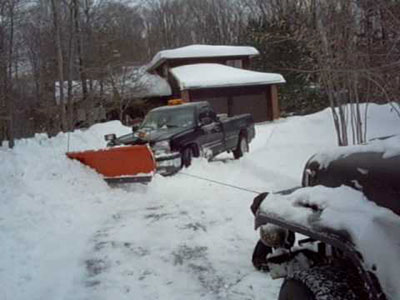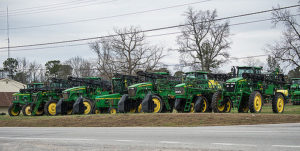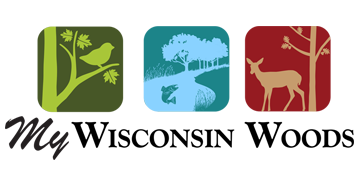Your Neighbors
Rural neighbors: Why do I need to know them?
While you may be new to rural Wisconsin, some of your neighbors’ families have lived in the area for generations – making them a valuable resource for you.
The benefits of knowing your neighbors

Permanent residents can keep an eye on your land while you’re gone. They may also be able to grant access to your land during a timber harvest, saving you thousands of dollars in forest road construction.
And that’s not the only money riding on rural relationships – consider the tax implications.
Taxes
Newcomers often aren’t interested or equipped to farm their tillable ground. Yet active agricultural land is not only taxed at a lower rate than fallow land (i.e., “undeveloped”’ in tax assessment classification) but adjacent woodlands are assessed as “agricultural forest,” reducing taxes by half!
In other words, renting your farmland is convenient for the neighboring farmer and results in a smaller tax bill and rental income for you.
Managing game
No matter where you’re from, nearly everyone is in the woods the third weekend in November. Few landowners own enough land to manage Wisconsin’s large game species by themselves. In almost all cases, deer and turkey would benefit from neighbors collaborating on management.
Bartering
Then there is the common currency of neighbors: the barter. Fix a driveway, mow a field, collect firewood, make hay, lend equipment – time has witnessed the barter of all things. Executed well, these simple transactions cost you little and have great value both for you and others.
Other must-have friends in your community
It’s been theorized that six or fewer “friend of a friend” connections link everyone on the planet (a.k.a., six degrees of separation). Fewer connections might link everyone in rural areas. As a rural woodland owner, connections with the right people can make all the difference to your ownership.

Local merchants
Farm suppliers and implement dealers solve problems for a living. So there’s a good chance your question has already been answered for another landowner. Not only that, but equipment dealers are willing to offer their past customers as a reference before you invest thousands of dollars into new equipment.
Peer groups
Goals among landowners predictably orbit a few themes, including recreational enjoyment, beauty and privacy, healthy land, wildlife habitat, or timber production. And yet, the landowner and land relationship is as complex as a chess match, with infinite possible moves and endings. Connecting with like-minded landowners allows you to model your game based on their successes and failures. It is important to remember that although no two chess games are exactly alike, no one is inventing any new moves either.
There are a number peer groups in Wisconsin:
Cooperative Extension
Every county in Wisconsin has a Cooperative Extension dedicated to the Wisconsin Idea – expanding knowledge beyond our university campuses to the boundaries of Wisconsin. Extension educators are connected to expertise on gardening, food preservation, agriculture, and, of course, forestry.
Want to know your county forester? Learn about agricultural leasing or horticulture? Attend workshops and classes? Your county Cooperative Extension is loaded with connections that benefit woodland owners.
